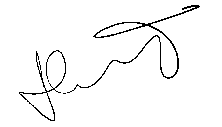TS Eliot’s poem “Little Gidding,” from which the lines above were taken, is not easy reading, but the gems hidden in his cryptic language make you want to look for answers. Analytical scientists are explorers; we love to find new routes – although the road can be long and full of obstructions. We are triggered by questions, and work hard to answer them. And after years of (sometimes tedious) work, it often comes together, crystallizing into simple rules.
It’s the story of modern science, perhaps of science throughout the ages, that instrumentation is the springboard for many discoveries. New tools open up new worlds, bring new insights and help us understand the world around us. Modern instrumentation, for example, allows us to delve deeper and discover the complexity of the fascinating world of cell biology. In recent years, we have been getting a closer look into the miraculous world of metabolism, DNA and proteins. Our cover feature this month is on lipidomics, a rising star in the world of metabolomics. Lipids have long been overlooked, partly because we could not easily measure them. But now, thanks to modern mass spectrometry, we can explore this new world, and it is becoming clear that lipids play a key part in how our cells and organs function – and malfunction. Of course, measuring these complex systems delivers data tsunamis that only slowly release their meaning – standardization will help bring structure to these data so we can interpret them. Michal Holčapek, Markus Wenk, Matej Orešič share their views here. In our second feature, Albert Robbat from Tufts University serves up some food for thought. His group is focused on “the complex interactions that occur between human and natural systems”; specifically, whether the quality of tea is vulnerable to changing climate conditions. The findings from Robbat’s group, and the software they developed along the way, will allow them to investigate other areas, including developing more palatable meals for cancer patients with compromized sensory abilities, for which they will combine their analytical methods with expertise from culinary chefs and nutritionists. That brings us to our dessert, an interview with Giovanni Dugo, a former professor of food chemistry, who laid the foundation for a world-renowned analytical laboratory in Messina, Sicily. He shares his love for Sicilian food and the Sicilian language, which led him – after a lifetime of scientific exploration – to take a new direction: writing recipes in rhyme. Buon appetito!
Frank van Geel Scientific Director







